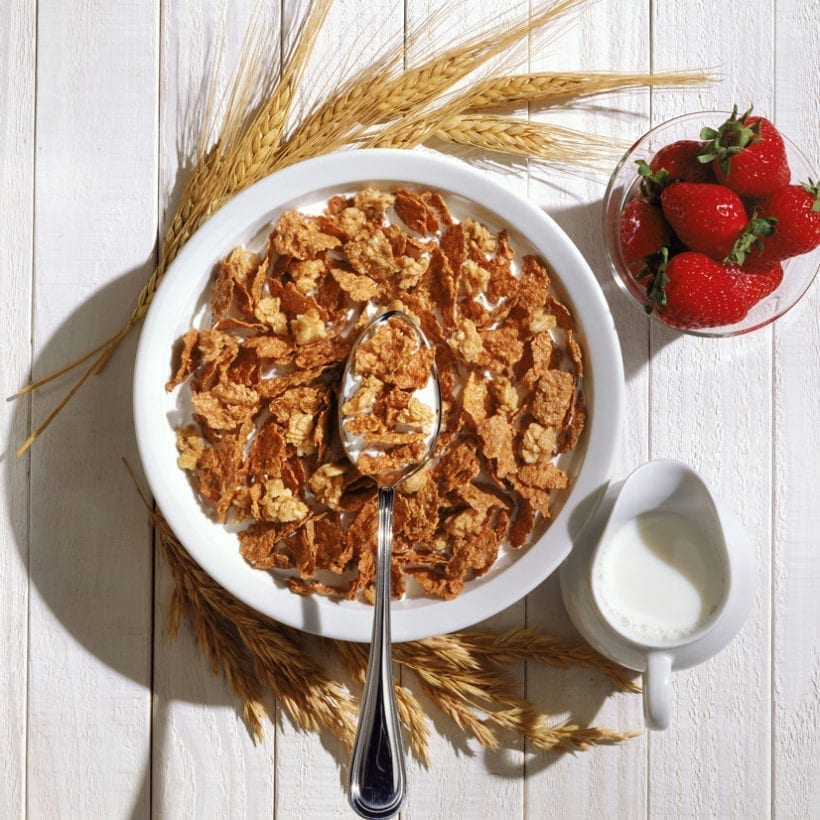Maybe you’re #hangry. Maybe that ginormous plate of Cacio e Pepe was so good you couldn’t help finish it even though you were full 20 bites ago. Perhaps you’ve missed your mom’s home cooking. We all have those times we ate far more than our stomachs could handle.
“If we have too much food in one sitting, our blood sugar becomes too high and will store what it doesn’t need (in the form of fat)”
“Normalized eating is when our body gives us cues when it needs food and when it’s had enough food. Hunger cues include a drop in blood sugar, giving us the feeling of our stomachs being empty, or energy cues like a drop in energy, feeling tired or foggy. In contrast, fullness includes sensing food in our stomachs, decreasing interest in the food we are eating, and a state of alertness from the energy and nutrients we just consumed,” she says.
Unfortunately, these cues get mixed up or cut off completely for some people, leading to frequent bouts of overeating. This can be pretty problematic for the physical health of the overeater. “If we have too much food in one sitting, our blood sugar becomes too high and will store what it doesn’t need (storage in the form of fat),” says Mora. “Chronic overeating over time can also blunt the stretch receptors in our stomachs that sense the amount of food we’ve eaten to the point where we no longer know when to stop.” Although weight gain in small amounts isn’t usually harmful, the other risk factors of overeating are quite concerning, including heart disease, cancer, and diabetes, per the Center for Disease Control and Prevention.

Overeating extends to your mental health, too. Perhaps you’re not eating mindfully (more on that below), or if overeating is a regular occurrence, it could signal a more complex issue such as a disordered relationship to food and body or an eating disorder, says Maria Sorbara Mora, M.S., R.D.
Here, nutrition experts share the most common indicators that you might be overeating and how to course-correct.
Meet the Experts
Maria Sorbara Mora, M.S., R.D. is the founder and Executive Director of Integrated Eating Dietetics-Nutrition PLLC.
Jacob Teitelbaum, M.D. is a board-certified internist.
Natalie Rizzo, M.S., R.D. is the founder of Greenletes.
You eat faster than everyone else
It takes about 20-30 minutes for your stomach to signal to your brain that you’re full, so if you’re scarfing down food so fast, you might overeat simply because you didn’t allow enough time for your body to send proper signals. But how do you stop eating when you don’t feel full yet? Jacob Teitelbaum, M.D., recommends putting two-thirds of your usual portion on your plate and permitting yourself to refill the plate as much as you like only after you’ve waited at least 20 minutes. “By then, your stomach will start to signal that you are full,” he says.
Food is all you can think of
While having an interest and delight in eating is part of a healthy relationship with food, Mora warns that overeaters can take things to a greater level to the point where they have a sort of obsession with food. “This can look like constant talk about food, the pleasure around food, the way the food tastes, textures, smells, etc., or maybe an over-excitement about going to a restaurant or a meal,” she says. “If you’re noticing yourself doing this, you may try awareness strategies like grounding your feet to the floor and taking a deep breath before taking notice of your surroundings or re-engaging in conversation with someone.”
You indulge in mindless eating
While it might seem like the polar opposite of being obsessed with food, mindless eating, when you eat while doing something else, can also be a sign of overeating. “Mindless eating can mean eating rapidly or not paying attention to the food you’re eating, which makes it easy to overeat,” Mora says. “If you notice you zone out often while eating, you may want to pay special attention during meal times and avoid distractions like the TV or your computer.”
You often experience acid reflux
If you notice a burning sensation in your chest after eating that’s often worse towards the end of the day, it could be due to acid reflux caused by overeating. “Overfilling your stomach stretches the valve that keeps your meal and stomach acid from squirting out of your stomach back up into your food pipe, which causes acid reflux,” explains Dr. Teitelbaum. You may also experience severe bloating when you overeat, leading to abdominal discomfort.

You’re gaining weight
To maintain weight, you must consume around the same amount of calories you burn daily. If you consume more calories than you burn, they are stored as fat, and you gain weight, explains Natalie Rizzo, M.S., R.D. “This doesn’t happen in one day, but rather throughout a long period,” she says. “If you’re overeating daily for a week, you may experience some weight gain.”
You’re using food to cope with your feelings
If you’re turning to food as a source of comfort, it could indicate that you’re an emotional eater and hence eating as a result of boredom, sadness, or stress rather than listening to your hunger cues. Physicians use a hunger scale like this to rate your hunger level to help differentiate between emotional eating vs. actual hunger. Think of quick activities that you can do to draw your attention away from eating if you’re not really hungry, like a 10-minute walk outside or organizing your bookshelf — then reassess.
We only recommend products we have independently researched, tested, and loved. If you purchase a product found through our links, Sunday Edit may earn an affiliate commission.







